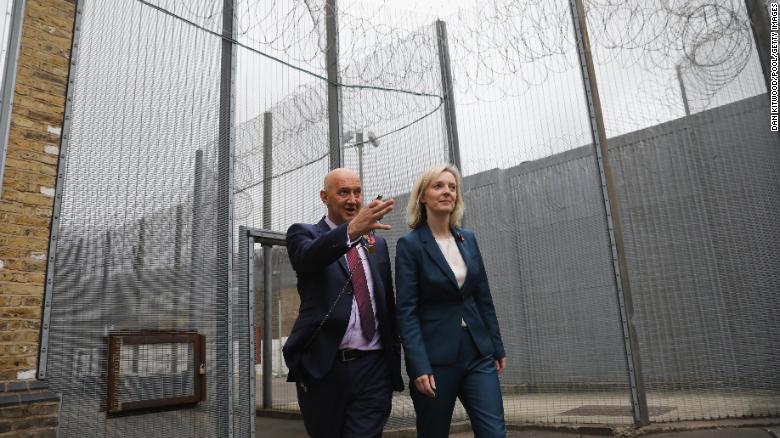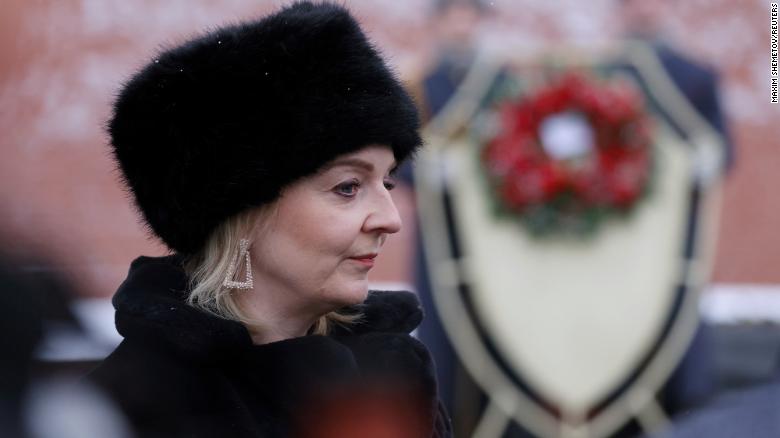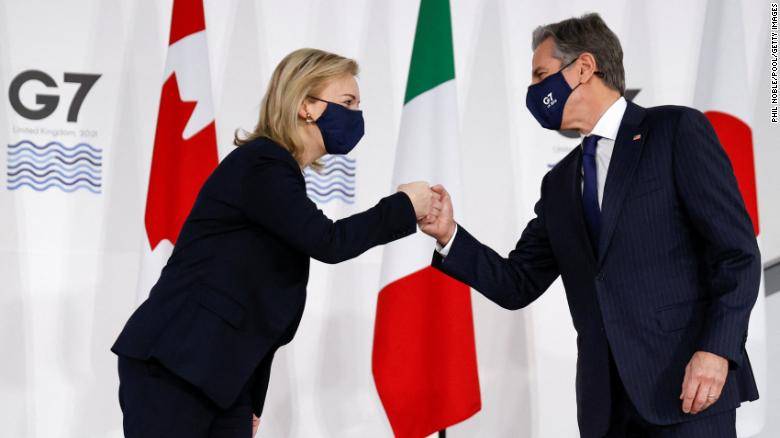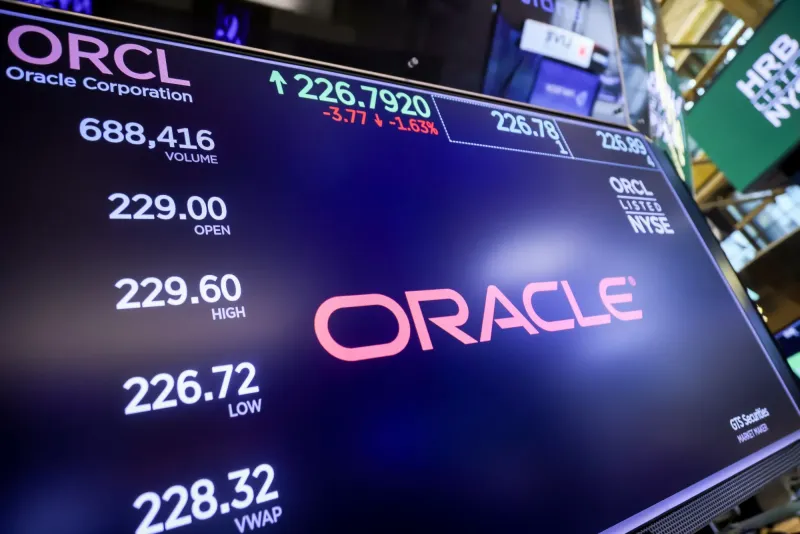The prospective prime minister of the United Kingdom, Liz Truss, is a political chameleon who transitioned from a radical who advocated for the overthrow of the monarchy to the leader of the Conservative Party's euroskeptic right wing.
In a relatively short period of time, Truss, who was first elected to parliament in 2010, has established herself as a political force of nature who pursues her mission with unwavering fire and enthusiasm.
But many will wonder just what Britain's next leader stands for following a decades-long shift in which her personal opinions significantly changed.
Many people who have observed her over the years wonder if she truly believes anything at all, or if she simply supports whatever is most practical at the time.
Truss, 47, has traveled a political path, and that is an understatement. She was born in 1975 into a family that, in her own words, is "to the left of Labour," the biggest left-wing organization in Britain. She was raised in Scotland and the north of England, respectively, in regions of the UK that didn't often support the Conservative Party.
Unlike her privately educated cabinet colleagues, Truss attended a state school in Leeds, a city in Yorkshire, and later received a scholarship to Oxford University. There, she participated actively in the Liberal Democrats, a moderate opposition group that has long been a potent rival to the Conservatives in many regions of England.
READ ALSO: Deities, Belief Systems, and African Legends: African Gods
Truss supported the legalization of marijuana and the abolishment of the royal family while she was a member of the Liberal Democrats, stances that are completely at variance with what the majority of people in 2022 would perceive to be mainstream conservatism.

Just two years after delivering a speech at a Liberal Democrat conference calling for the abolition of the monarchy, according to Truss, she joined the Conservatives.
The economic "catastrophe" that Boris Johnson leaves for his successor is one that will be felt for years to come.
Her contemporaries questioned her sincerity even while she was a Liberal Democrat and noted characteristics that they claim to still be present in her today.
A Liberal Democrat councilor who ran with Truss in the 1990s told CNN, "I honestly think she was playing to the gallery back then, whether she was talking about decriminalizing drugs person eliminating the monarchy." "I honestly don't know if she ever believes what she says, then or today. I think she is someone who plays to the gallery with whichever audience she is talking to."
Truss has undoubtedly succeeded in keeping her audience interested. She has ardently backed nearly every imaginable philosophy since joining the Conservatives and running for office. She devotedly worked in a variety of cabinet positions, most recently as the foreign secretary, for three successive prime ministers.
Most notably, she favored staying in the EU during the 2016 UK vote. In a tweet from the time, Truss stated that she supported those who favored staying in the union because "it is in Britain's economic interest and allows us to concentrate on crucial domestic economic and social reform."
Truss now supports Brexit, claiming that her pre-referendum concerns that it may cause "disruption" were unfounded.
Recently, the new leader even went so far as to refuse to refer to French President Emmanuel Macron as an ally in an effort to bolster her Brexiteer credentials. She responded, "jury's out," when asked if he was a friend or opponent during a live broadcast.

The Conservative Party is divided over the validity of this support for Euroskepticism. Some believe that in 2016, Truss resisted following government directives that were hostile to Brexit. Some people find that argument absurd.
According to Anna Soubry, a former minister in the Conservative government and anti-Brexit activist, Truss "had the most cover out of any of us to back Brexit." Her clientele at the time included farmers, who were largely in favor of Brexit.I found it difficult to believe she had changed her mind so drastically after listening to everyone's justifications when we were seated around the cabinet table.
However, after the Brexit vote, "Truss made a very early determination that there wasn't room for a compromise," according to former chief of staff for Theresa May, Gavin Barwell. If you were going to do it, you had to do it completely. And as the impasse persisted, she claimed that the UK would suffer terrible consequences if it chose to cancel Brexit rather than reach an agreement.
I found it difficult to believe she had changed her mind so drastically after listening to everyone's justifications when we were seated around the cabinet table.
However, after the Brexit vote, "Truss made a very early determination that there wasn't room for a compromise," according to former chief of staff for Theresa May, Gavin Barwell. If you were going to do it, you had to do it completely. And as the impasse persisted, she claimed that the UK would suffer terrible consequences if it chose to cancel Brexit rather than reach an agreement.
Of course, these kinds of proposals were red meat to the Conservative members who ultimately supported her. And while some of her close friends worry how strongly she really believes in them, there is no doubt that she will give it her all to put them into practice and have an instant impact.
A Truss administration might end up resembling Johnson's in many ways, but with a stronger focus on tax reduction, state consolidation, and perhaps even a tougher stance toward Europe.
In the midst of a predicted recession, critics have claimed that the tax cuts she has pledged will increase inflation and interest rates. Concerns were also raised about a promise Truss made to reduce public sector salaries, ostensibly saving the general public $8.8 billion. Her economics were questioned by her detractors, and the outrage over her alleged callousness toward employees of the public sector compelled Truss to reverse course.
Truss was a university classmate of Julian Glover, a journalist who also wrote speeches for former British Prime Minister David Cameron. Glover recalls that Truss was determined but unfocused.
Glover told CNN that despite the fact that they just briefly crossed paths and that she was a year older than he was, "she stands out in my recollection as a sort of odd, misdirected energy, tremendously in favor of action and change." "Except that she would be at the heart of it, it was always difficult to discern the objective of it all, or where it may lead."
In an interview with CNN, Roger Crouch, the Oxford University Liberal Democrats' new president who took over for Truss in that position, recalled a woman who was "determined, single-minded and willing to confront orthodox and dominant, typically male, thinking."
Contrary to the thoughts of many people who knew Truss when she was younger, teacher Crouch believes that she hasn't changed significantly since the 1990s. "There is a recurring theme in that Liz was more of a privatized, libertarian liberal. She supported the privatization of lampposts during a student discussion group, in my memory."
Having been in power for 12 years and being fiercely split over Brexit for six of those years, Prime Minister Truss will have a difficult job bringing her party together.
Additionally, she will have to guide the nation through the biggest housing and cost-of-living crises in decades. The UK is expected to experience a recession before the end of the year, energy costs are expected to rise by hundreds or even thousands of pounds annually, and inflation is at a 40-year high.
For the first time in forty years, inflation surpassed 10% in July, mostly due to increased prices for fuel, food, and energy. By the end of the year, inflation will climb to 13%, predicts the Bank of England. The UK will have a recession before 2022 is out, according to the central bank. This may be a challenge for Truss in terms of leading the nation. Early on in the campaign, she received less support from MPs than did Rishi Sunak, and resentment between the two sides has gotten deeper.
And despite Truss' tenacity and focus, she takes over a party that is split by internal strife and losing support during a domestic crisis. As a result, she might find that her main goal—making her party electable at the following general election after so many years in power—is too challenging to accomplish.




